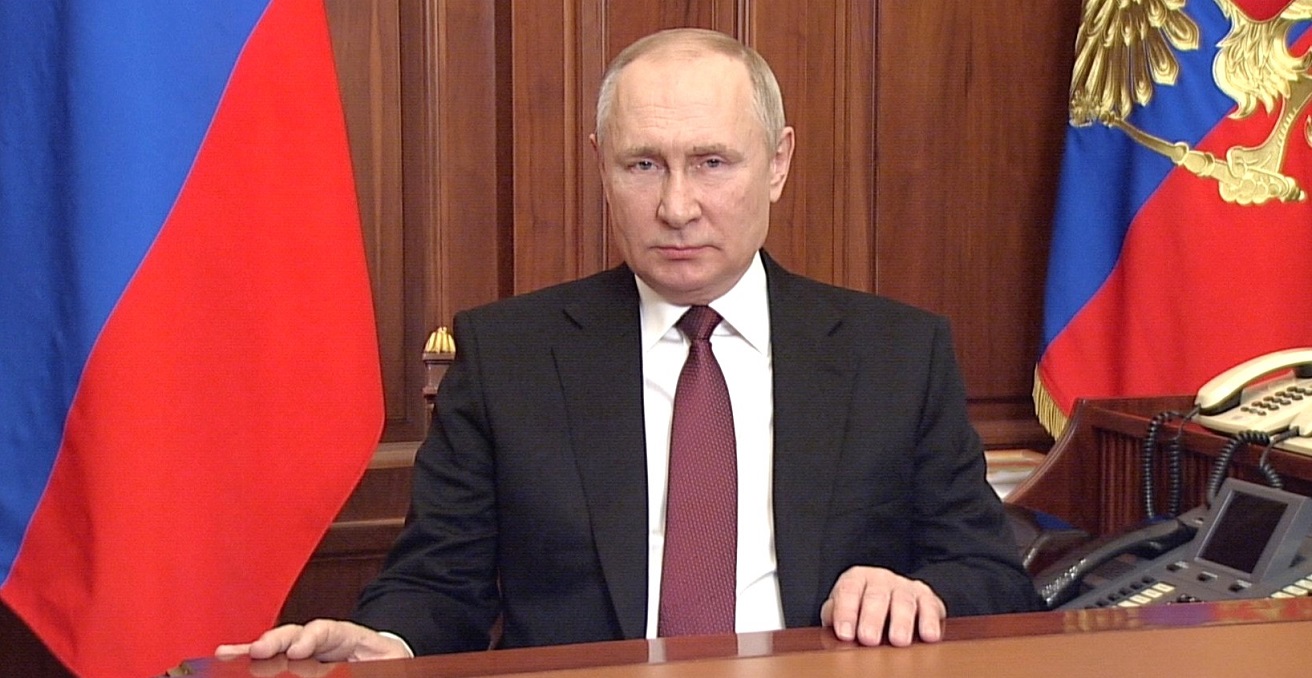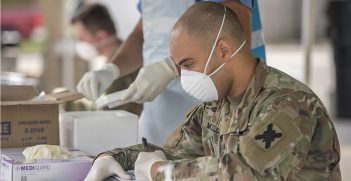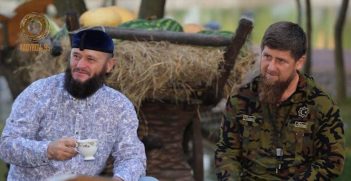When War Comes

24 February 2022 becomes another date for the history books. Seventy-seven years without war between major powers came to an end with a full scale invasion of Ukraine by Russian forces under the order of President Vladimir Putin.
Although widely and accurately predicted by the West’s intelligence services, the first sign of the military onslaught was a traffic jam spotted on Google maps on a Russian road approaching Ukraine’s eastern border. When war comes, it is always useful to analyse what we can learn from its origins, assess the impact on those who will be hurt the most, and to make a guess as to how and when it will end.
A war can continue for months, even years, without many of those fighting in it, let alone the wider population, having a clear idea of how it began. The Diggers, bogged down for months with rats and lice in the muddy trenches of the Somme or awaiting their fate at Anzac Cove, knew little of the origins of World War I. Academics still argue about the political instability in the Balkans that had threatened shaky European alliances before the trigger point for war – the assassination of Archduke Franz Ferdinand of Austria by a Serbian nationalist.
Putin’s war against Ukraine goes back to the final months of the Cold War, when Putin was a Soviet KGB officer based in the German city of Dresden, during the period when president Mikail Gorbachev was negotiating glasnost with the West. Putin recalls, correctly as it happens, that when the reunification of Germany was being discussed, ending the de facto Soviet control of East Germany, there was discussion of a NATO-Russia Founding Act under which NATO’s eastward expansion would end at the new Germany’s eastern border.
Research by Mary Sarotte, history professor at Johns Hopkins University, who has examined official and private papers of those involved in these negotiations, describes in her recently published book Not One Inch how in 1990 James Baker, then US secretary of state, had laid out a hypothetical bargain with Gorbachev whereby if he pulled out his hundreds of thousands of troops from East Germany NATO would not shift “1 inch.” Helmut Kohl, then German chancellor, also promised that NATO would not extend east. Of course, the Soviet Union collapsed in 1991, and these promises were never formalised. Ukraine, on the western front of the Soviet Union, became a sovereign country in its own right.
Putin’s current narrative is how the West deceived Moscow during those years, and then humiliated the Russian Federation. His resentment grew as Poland, Czechia, Bulgaria, Hungary, Romania, and the three Baltic states – former members of the Warsaw Pact and under Moscow’s sphere of influence in Eastern Europe – became members of the European Union and in some cases joined NATO.
By the time Putin delivered his hour-long history lesson, his long resentment had become an obsession. With barely contained emotion, he demanded that former Warsaw Pact countries immediately pull out of NATO and Ukraine undertake never to join the security pact. His demands were curtly rejected by the US and the EU. The history lesson was not new, but a precis of a 5,000 word essay on the West’s efforts to undermine the “unity of the Slavs” published last July and available in English on the Kremlin’s website.
The victims of war
The number of victims of this war is impossible to calculate, and will not be confined to the countries of Ukraine and Russia. There will be casualties on both sides; the numbers depend on whether Putin decides on a full blooded assault on Kyiv, or encircles it and seeks to starve it into submission.
Already it is clear the war will create a substantial refugee problem. Thousands of Ukrainians are now heading west towards European Union countries, which are already coping with hundreds of thousands of refugees and asylum seekers who have fled Syria, Iraq, Yemen, and North Africa. Anticipating up to a million from Ukraine, refugee organisations have set up operations in Poland. Norway’s EU representative noted many arriving from Ukraine were well educated and might well fill some of the skills shortage problems countries like Britain and Australia face. Both Poland and Norway have set up units to speed up visa applications from Ukrainians.
In addition, of course, there is the broader harm to individuals and businesses from the soaring oil and gas prices. The price of oil reached a seven year high on Friday, while gas futures spiked by as much as 47 percent, with the cold snap in Europe coinciding with the start of war in Ukraine. The world has learned to live with prices as high as these before, but with inflation in much of Europe running at five percent or more, life will be uncomfortable for families and businesses alike.
The rising price of gas is a particular problem for Germany, Europe’s powerhouse, which is more than 40 percent dependent on Russian gas for electricity generation and domestic heating. Gazprom, Russia’s state-owned gas utility, has lost no time in putting up prices to Europe. Worse still, much of Russian gas reaches Europe through Nord Stream 1, a pipeline which transverses Ukraine and could be disrupted by war or shut down by Putin in a bid to retaliate against Western sanctions.
Ursula von der Leyen, president of the European Commission, is spearheading an attempt to diversify Europe’s dependence on Russian gas from alternative sources, including LNG supplies from Qatar and the United States, as well as tapping the pipeline from Azerbaijan to Italy. The EU is also looking at nuclear power options following an announcement by French president Emmanuel Macron that he intends to build six new nuclear reactors.
When will war end?
We don’t know when the war in Ukraine might end. If Putin’s ambition is just to crush the Ukraine government and install a regime favourable to Moscow – one he would call neutral – then it could end quite quickly, although it is likely to be followed by a long period of instability. But one can never predict how long wars will last. Putin may be tempted to continue the fight into Europe itself, taking on NATO in one of the Baltic states or the Eastern European countries that have now aligned with the West. Most wars end badly.
Putin has already factored in the impact of sanctions on Russia and its people, which means it will take more than what Washington has come up with so far to remove him. And remove him we must, for he has not hesitated to remind us in recent days that Russia has nuclear weapons at its disposal. The threat could not be more blunt: “Whoever tries to stand in our way or create threats for our country and people should know Russia’s response will be immediate and lead you to consequences you have never encountered in your history,” Putin said on the eve of launching the invasion of Ukraine.
Colin Chapman is editor-at-large of Australian Outlook and a fellow of the Australian Institute of International Affairs. During his career he covered a number of wars as a special correspondent, and wrote a book, August 21st: The Rape of Czechoslovakia, about the Russian invasion of that country after the Prague Spring of 1968. He was president of AIIA New South Wales.
This article is published under a Creative Commons License and may be republished with attribution.





